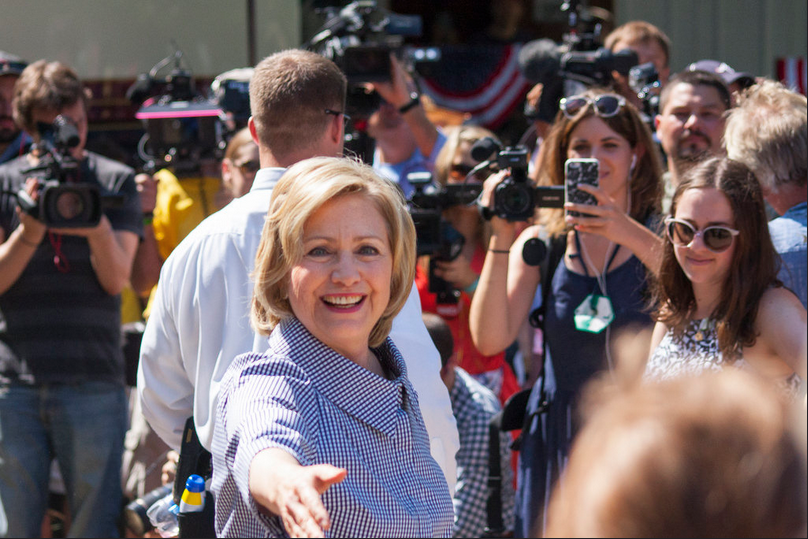Nirav Desai staff writer
Though the upcoming Iowa Caucus has dominated the American political limelight for the past few weeks, the quadrennial process may still remain confusing for many around the country. This article hopes to assist those who fall into this category in understanding this exciting moment in the ongoing election season.
Has anything big recently happened in the 2016 presidential race?
The answer to that question will always be yes, as the unpredictability and general shenanigans of this particular election cycle have placed a massive media microscope on everything that has unfolded thus far. Case in point: Bernie Sanders’ dandruff made an appearance during the first Democratic debate and came away with its own Twitter account.
Anyway, yes, a lot has happened recently. Casual observers of politics may recall that Donald Trump was leading in most polls during his quasi-insurgent campaign’s incredibly overachieving 2015. The Trump trend is still the rule in most states, but his hairpiece’s hold on Iowans has lessened over the course of January, with fellow enemy-of-the-establishment Ted Cruz now vying for the lead in the Hawkeye State. Marco Rubio, likely the Republican Party elite’s best shot at dethroning the “outsider” candidates, has clawed his way to third place. This is a fairly respectable mark for the young senator, as he has barely campaigned on the ground in either of the first two contested states. Jeb Bush’s name has rarely graced recent headlines for self-explanatory reasons.
Yes, that all sounds very interesting. So, what has Trump been saying lately?
Oh.
Sorry.
Well, Trump has now added Sikhs to his literal hit-list of targets at his rallies. Congratulations to that minority community, as they join Latinos, women in general, Blacks and Muslims in being the target of Trump’s unsavory remarks.
Additionally, Trump decided to upstage this past Thursday’s GOP debate on Fox News due to his self-inflicted war of words with the network’s Megyn Kelly. Instead, Trump will hold a televised fundraiser for Iowa veterans.
Iowa?
Yes, the Iowa Caucus will be held on Feb. 1, which is this upcoming Monday.
Sure, but Iowa?
It may sound odd, but Iowa has traditionally had the honor of hosting the first political bout of the election year since 1972. This is essentially a way to force Democratic and Republican candidates to pay attention to Iowa’s needs in a national election cycle that typically ignores states with minimal numbers of electoral delegates.
Whereas a normal primary involves individual voters going to a polling station and privately bubbling in their votes for the candidates of their choice, a caucus is a much greater spectacle. Campaigns will rally of-age supporters in each of Iowa’s 1,682 precincts to show up on Monday to their assigned caucusing venue. Then, the actual caucusing will commence as supporters of each candidate will intermingle with supporters of opposing candidates to discuss the impending vote. Much persuasion will be attempted until it is time to declare your vote. The two candidates with the most supporters in their corner will advance to a second vote, while any other candidates will essentially get caucusblocked from receiving delegates as they watch their former supporters choose a second-choice candidate. Once a precinct’s final first-place winner is announced, the assigned delegates for that precinct will cast their vote for the winning candidate at the state caucus.
Though exciting, the Iowa Caucus frankly does not have much of an impact on the final outcome of either party’s primary. While Democratic caucusers have managed to correctly choose the eventual nominee every time in the past 20 years, their Republican counterparts have not managed to replicate that success for the past 10 years. Still, the caucus is often an important indicator of trends in an election cycle.
Wait, why are you talking about the Democrats now?
The Democratic Party is also holding its own caucus in Iowa on Monday. Hillary Clinton, Bernie Sanders (scalp follicles) and Martin O’Malley will appear on the ballot in the smaller of the two main races. Sanders was hoping to replicate the success of President Barack Obama in 2008, and produce a come-from-behind victory that could send him on the road to a surprise nomination in July. However, the latest opinion polling suggests the Clinton machine’s hold on Iowa delegates may be too strong for the democratic socialist to overcome.
Categories:
A Guide to the Iowa Caucus
January 29, 2016
Democratic frontrunner Hillary Clinton gets a head start on the Iowa Caucus campaign trail in a meet-and-greet at the 2015 Iowa State Fair. Photo contains no modifications and is reused with permission from Phil Roeder (Creative Commons).
0
Donate to Highlights
$125
$1000
Contributed
Our Goal
Your donation will support the student journalists of Beverly Hills High School. Your contribution will allow us to purchase equipment and cover our annual website hosting costs.
More to Discover






























